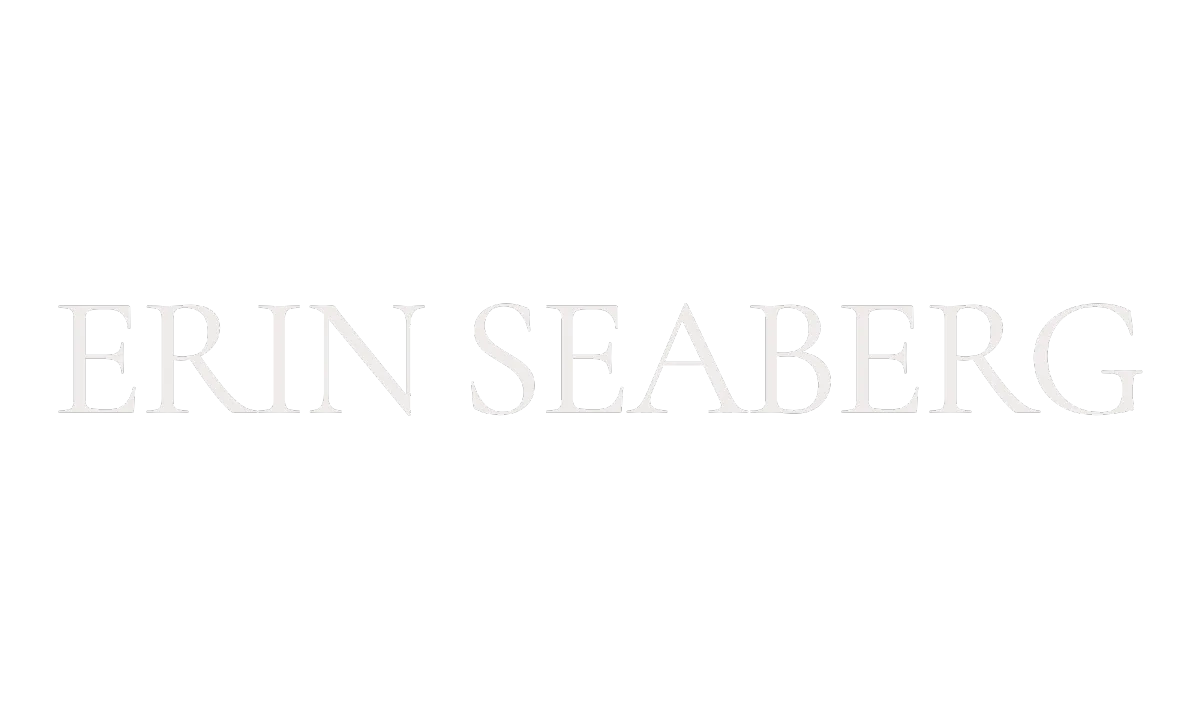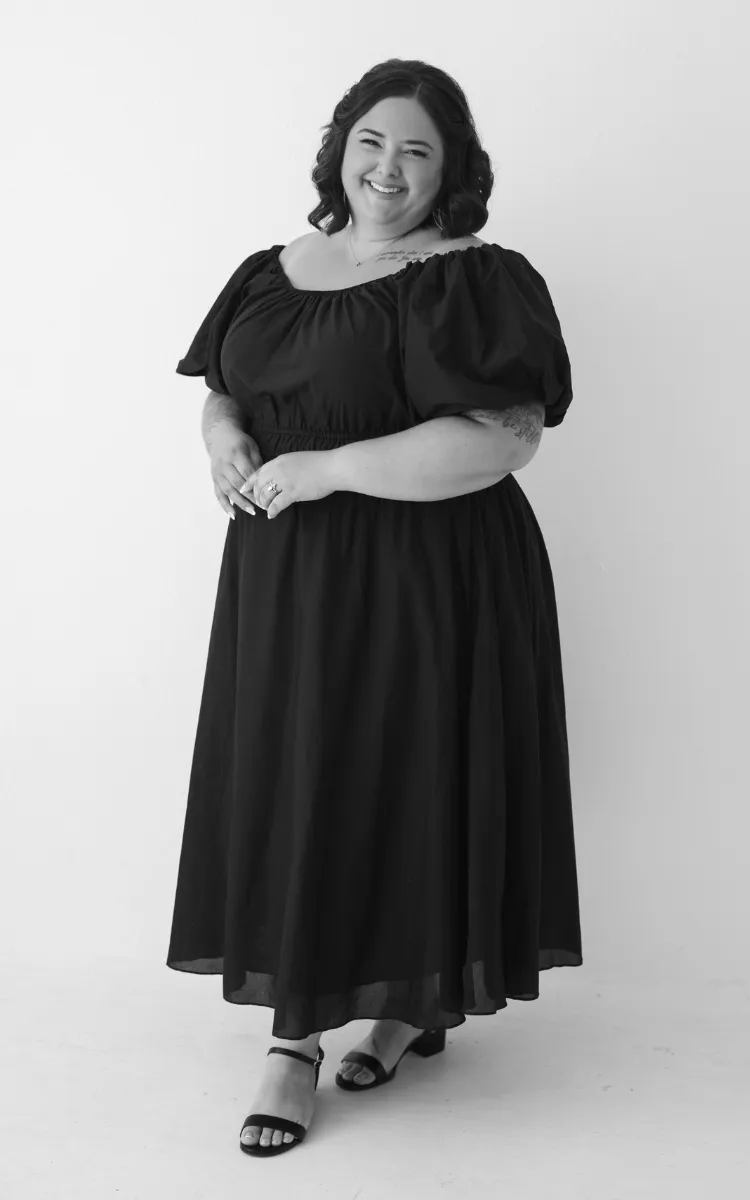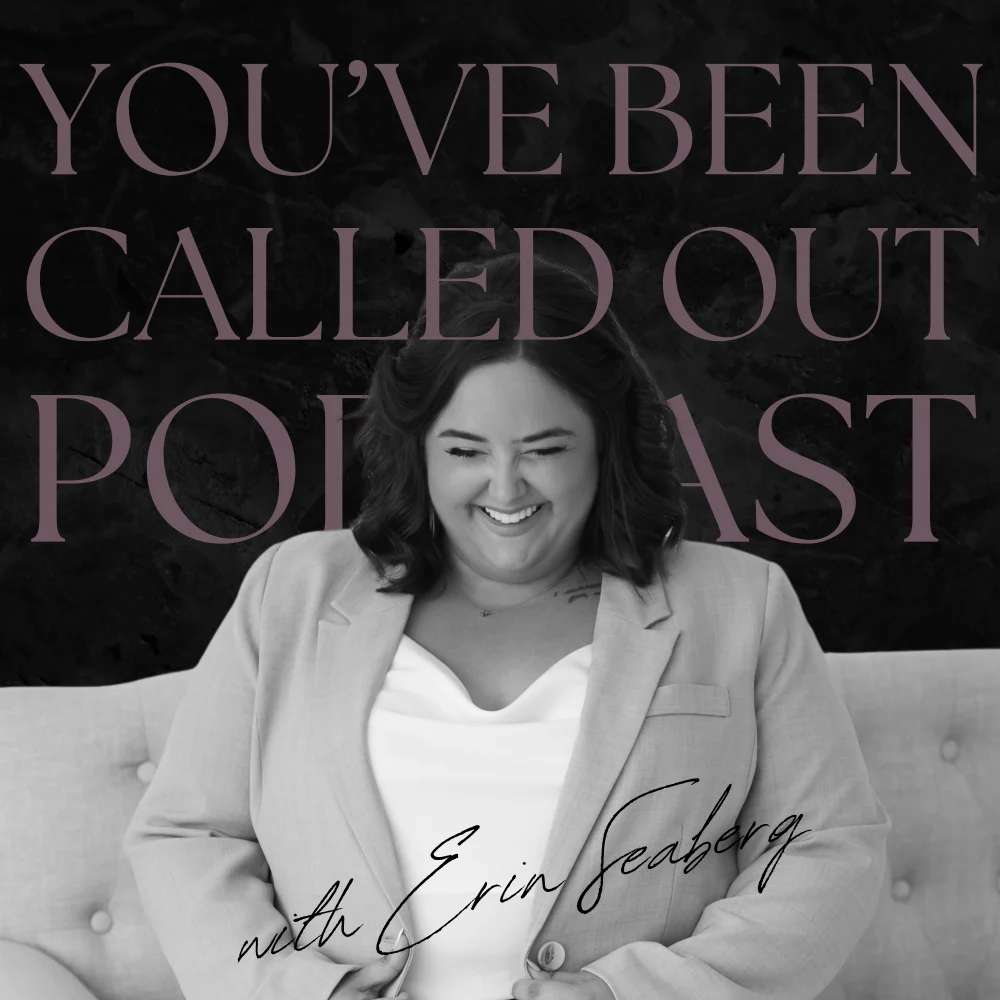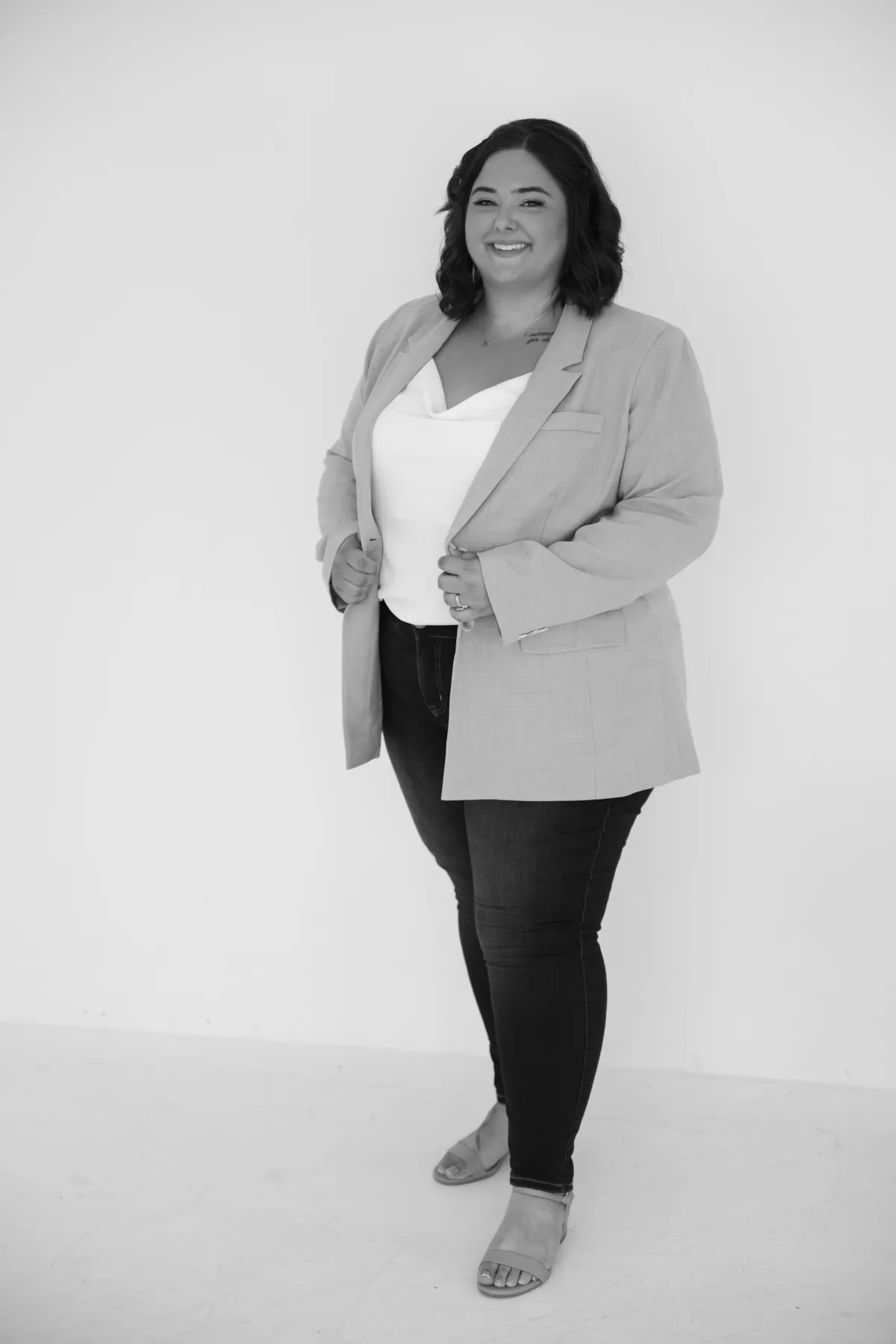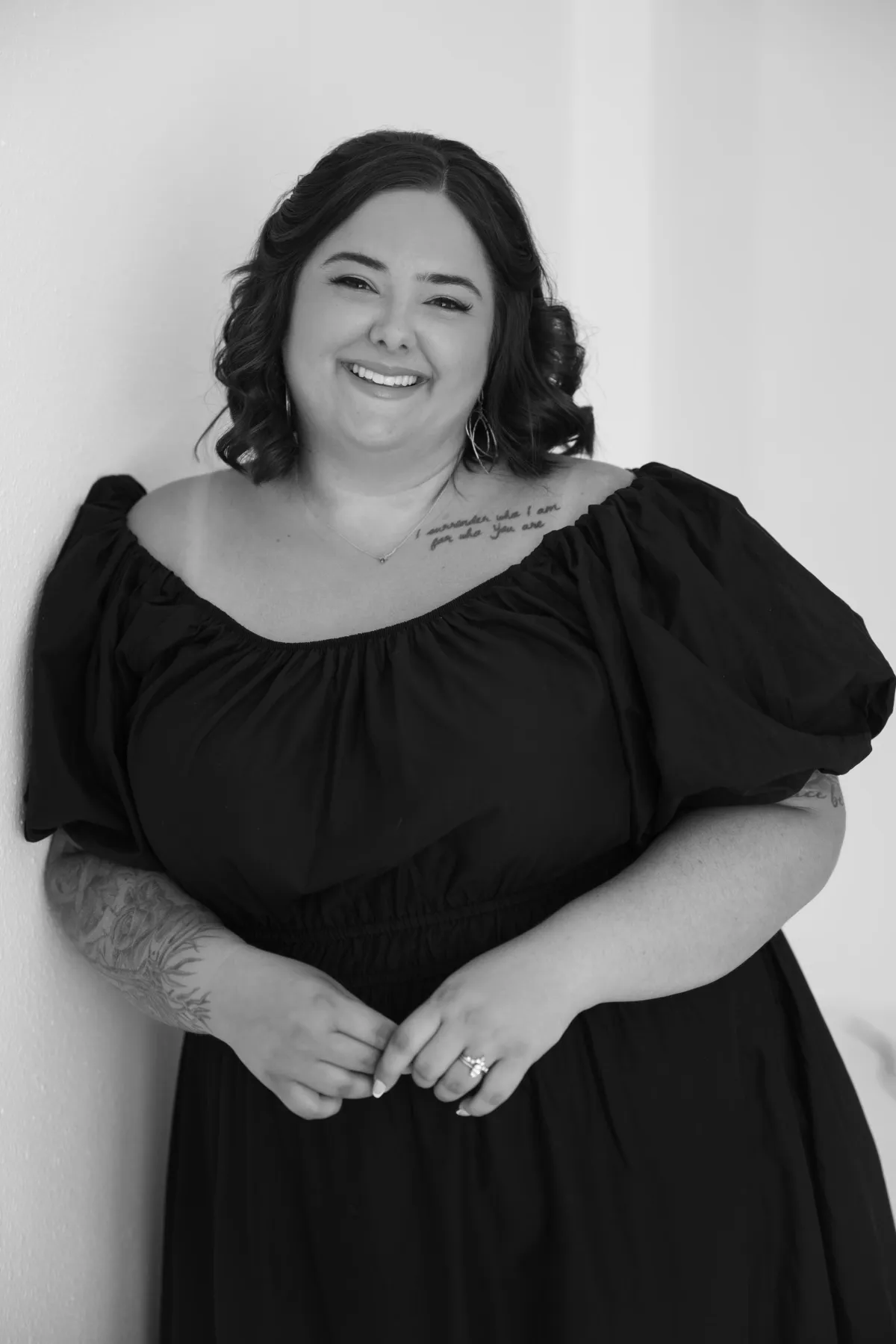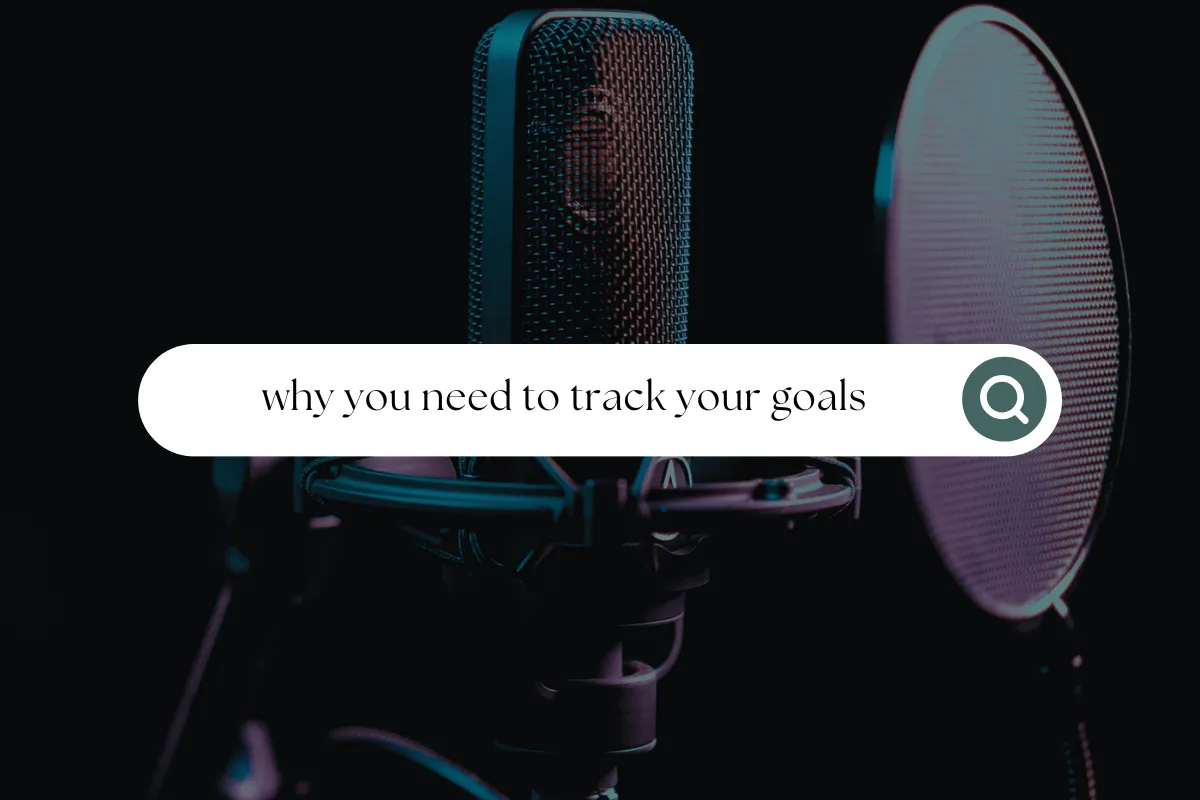
Why You Need to Track Your Goals
Episode Summary:
We all set goals, but how often do we actually track them? Tracking your goals is the key to staying motivated, measuring progress, and making real, lasting changes—whether in your business, personal life, or faith journey.
In this episode, we’re diving into the power of goal tracking and why it’s essential for success. We’ll explore practical methods to track goals effectively, how to stay consistent, and ways to overcome discouragement when things don’t go as planned. You’ll also learn how to invite God into your goal-setting process so you can pursue not just productivity, but purpose.
If you’ve ever struggled with sticking to your goals or felt like you weren’t making progress, this episode will equip you with simple strategies and faith-filled encouragement to keep moving forward with confidence.
Key Takeaways:
🖤 Why tracking your goals increases success and accountability.
🖤 Simple tools and methods to make goal tracking easy and effective.
🖤 How to stay motivated when progress feels slow.
🖤 Inviting God into your goal-setting process for greater clarity and peace.
Key Scripture:
✨ “Commit to the Lord whatever you do, and He will establish your plans.” – Proverbs 16:3
🎯 Listener Challenge:
This week, take one step to improve your goal tracking!
✔️ Choose a tracking method that works best for you (planner, app, journal, etc.).
✔️ Set a small, faith-driven goal and track your progress daily.
✔️ Pray over your goals and ask God for guidance in each step.
Write down your reflections and adjust as needed—progress over perfection!
Let’s Connect!
📲 Instagram: @erseaberg
💌 Join My Community:
⭐️ If this episode encouraged you, leave a review and share it with a friend!
You are capable, called, and equipped for the goals God has placed on your heart. Keep going!
Transcript:
Hello, I'm Erin Seaberg, and welcome back to You've Been Called Out, the podcast for Christian women who are stepping into their entrepreneur era.
Today, we're talking about goal tracking, which should be really at the top of everyone's mind for 2025.
And something that I will say is kind of a step that's forgotten in the goal setting process.
It's very easy to set goals and to have this kind of big-picture vision and then not have a follow-up process, not have an accountability process to make sure that we're actually maintaining, you know, we're on track to achieving those goals.
And then also chatting a little bit about what it looks like to reflect and make sure that we are moving in the direction of those goals at all times.
And if we're not, how do we get back on course?
So I want to share with you a little bit about what this looked like for me in 2024 with a very specific application.
It was for reading my Bible.
I wanted to read my Bible more in 2024.
I wanted to specifically go through the Bible in a year.
And the church that I was attending at the beginning of the year had this wonderful little booklet.
It was like a couple of pages with a breakdown of, you know, day one, day two.
And it was reading the Bible five days a week.
And you would get through key passages in the Old Testament and all of the New Testament, and also read Psalm and Proverbs as well.
And so I decided that that was definitely something that I was going to make happen.
And I hit the ground running in January, kind of, but not really.
I started out and I only had four days in the month of January.
I only had four days that I read my Bible.
And when I got to the end of January, I was like, well, this isn't good.
I'm going to be super behind.
And I started to think, what does this look like to get caught up, to get on track or whatever?
You know, what am I trying to accomplish here?
And how important is it that I hit the goal?
And how important is it that I learn to read my Bible every single day?
And the conclusion that I came to was that it was more important for me to learn to read my Bible every day than it was to necessarily hit the, you know, the cramming of getting everything in.
I didn't want to hate it.
I didn't want to dread it.
I didn't want to be like, well, I have to read 15 chapters today in order to get caught up or, you know, to stay caught up or whatever.
I didn't want to have to do that.
So I decided that it was actually would be better to just build the practice of doing it every single day to the best of my ability and when I finished, I finished.
That was kind of the mindset that I was in.
So I started keeping track of how many days each month I was reading.
And I did four in January.
I did a few more, I think I did like 10 in February.
And then for a couple months, I got stuck in like this 13, 14, 15, you know, times a month for several months.
And I was like, what is holding me back here?
What is the issue?
So I started to reflect, you know, what's keeping me from accomplishing this?
What's keeping me from showing up every single day?
And part of the conclusion that I came to was that it was environment.
So for me, I need a structured environment.
I need visual cues.
And so my Bible was next to my big chair in my office, which was like kind of tucked behind my desk based on where I entered the room.
And I had to like climb into the chair and get the Bible out.
And by the time I had my notebook out and my Bible and everything, like stuff was all over the place.
I didn't have anywhere to like put like a glass of water or anything like that.
So it just felt...
it didn't feel relaxing.
It felt a little bit chaotic.
So I thought, what if I started reading my Bible at the island every day, at my kitchen island, and I started leaving my Bible on my island?
And that completely changed the game for me, because every morning when I would wake up, I would see it there.
And if I didn't read it in the morning, by the end of the day before I went to bed, I would see it again.
And it was very hard to ignore when it's kind of the center of the room, because I have a like open floor plan apartment.
So, you know, walking to and from our bedroom to the office living room, like it's literally the middle of the space.
So it's very difficult to ignore.
I also loved sitting at my island, because I could have my water, I had a space for my Bible, my, you know, my journal, you know, all my pens, whatever.
So that became my spot.
And I looked forward to every morning before I started work, getting up and reading my Bible.
And slowly throughout the year, I saw the time increasing of how, you know, how much I was getting done.
When I got to like November, I was looking and I was like, wow, like, I kind of don't have that much left.
Like, this is kind of cool.
Maybe I'll be able to get it all done by the end of the year.
And so at that point, now I had six weeks left in the year-ish, roughly six weeks.
And I was like, oh, I can do this.
Like, and then there was confidence.
There wasn't a sense of dread, like, oh my gosh, I have to read so much.
It was like, oh, I could easily knock out four or five chapters a day and be able to hit this goal by the end of the year.
And then it was more like a game, a challenge.
It didn't feel so overwhelming.
It didn't feel so big.
But at the beginning of the year, when I told myself, go at your own pace, the most important thing is that you learn this habit, not that you cram everything in.
You know, the intention was different.
It was like, what is the goal?
The goal is not to cram as much of the Bible down my throat this year as I can.
It's to learn to love to read, just like I had said earlier.
And so now I was like, okay, well now I've learned to love this.
I have learned to this daily practice.
Now I also want the satisfaction of knowing that I finished it.
So I started reading a couple extra per day.
I started doing like an extra, maybe a couple extra chapters in songs or wherever it had me reading.
And I started marking those off.
And as I was getting closer and closer, I was like, okay, well if I miss a day, like this is gonna throw everything off.
So I didn't miss any days.
I didn't miss a single day.
Seven days a week I was reading.
So from November 18th to January 3rd, I read my Bible every single day.
Now, I didn't always read multiple lessons.
So when I tell you that December 30th and December 31st, between those two days, I read the entire Book of Revelation, that is no joke.
Like it was like drinking from a fire.
By the time I got to the end, but I was determined at that point.
But the point is that it was the habit that was established, right?
Like throughout 2024, that was the focus, was building that habit, creating that craving.
On days where I didn't read my Bible prior to November 18th, I was like, oh my goodness.
It threw off my whole day, and I missed it, and I craved it.
And that's true of any habit that we build.
We get into this rhythm, and then when we don't do whatever it is, could be drinking a glass of water first thing in the morning, or reading our Bible, or taking our dog for a walk, whatever that looks like, when we don't do that, now all of a sudden, that's the weird thing.
But it takes a minute to get there.
It definitely took time.
This did not happen overnight.
It literally took a year to get to this place.
And our pastor, the last Sunday in December, his sermon was on finishing strong, finishing out the year strong.
And that really resonated with me because that was kind of my mindset going into those last six weeks.
I was like, I have come so far.
I've read almost the entire Bible this year.
And I established the habit.
That was the goal.
The goal is to establish the habit.
Now that I've done that, I want to finish strong.
I want to get all of this information.
I want to take it all in.
And I want to finish strong.
And so that's what I did.
And it was amazing.
And now I look back at that little couple page little booklet with all the dates that are on there, all the little check marks on there, and I can see the habit that was established.
But this is where it gets crazy.
2025, I was creating my own tracker.
I wasn't using one that was already put together, and I have been slacking on putting that together.
And so now it's January 15th, and I've maybe read my Bible like five or six times so far this year.
And it's because I didn't have a plan, and I didn't have a way to track it.
I have a plan.
It's in my head.
But I didn't have in front of me, it's day one, you need to read this, and then track it.
And because I didn't have that, I have been like, well, I can read my Bible, but like, what am I going to read?
Like, I've already kind of read everything already.
Like, I don't really have like a structure or framework or whatever, and I'm making up all these excuses.
And so it's fascinating to me and kind of eye-opening that I spent six weeks reading my Bible every single day, craving it, not wanting to miss a moment.
And the second I didn't have a plan, it started to fall apart.
And I wish I could say that I did this on purpose, as like an illustration, because it's a great teaching point, but I didn't.
And it was not intentional, it was not purposeful.
It is very frustrating, because this is not what I wanted my year to start off like.
We finished strong, I didn't want to start out not strong.
I didn't want to start out on this note.
But alas, here we are, and we're rolling with it, and we're gonna course correct, and I'm in the process of finishing that document up so that I have a plan.
But it just goes to show how critical it is to have those goals laid out and to have a way to track and have a plan.
So you could say, my goal is to walk 10,000 steps a day, but if you don't say like, okay, I'm gonna walk my dog in the morning for 10 minutes, you know, I'm gonna walk after lunch, whatever.
If you don't have a plan and you're just like, I'm gonna hit 10,000 steps.
It's like, well, how are you gonna do that?
Every single day is gonna be a guessing game of how you're going to accomplish that goal, because you don't have a plan.
So planning is critical, tracking is critical, and then also course correcting.
You want to make sure that you have a way to reflect and to course correct.
And that was really what I was doing all throughout the year when I was like, okay, did I hit, you know, why am I not hitting a certain number of days?
Why am I stuck in this, you know, 14 day rut?
And then I moved my Bible to the island.
You want to be able to reflect on the current process, and figure out why you're in that situation, and then be able to address it to move forward.
So I know that this is kind of a shorter one.
Maybe this is great because it's more bite size, and you can listen to it in the car, or while you're washing dishes, or whatever.
But if I could just give you three takeaways to sum up, it would be, you know, you have your goal, obviously, but have a plan for how you're gonna accomplish the goal every single day, have a tracker, and then have a reflection process because you want to be able to look at what you're accomplishing, what you're not accomplishing, and then you want to be able to course correct from there.
So plan, track, and then reflect, and course correct along the way.
And I would love to hear about your 2025 goals, if you want to send them to me in a DM.
I would love to chat about them.
And I would also love to hear if there's anything that you're doing, specifically, to make sure that you're able to track things.
Maybe you've got a whiteboard, maybe you've got something on your phone, whatever that looks like.
I would love to hear about what that looks like for you, and what hasn't worked for you maybe, and how you reflected and course corrected, and how that's going now.
And if there's anything that I can do to encourage you in that process, I would say just stay the course.
It can be super overwhelming sometimes when we look at our really, really big goals, especially when we think about how big our God is, and that we can dream up anything, and that we could tell a mountain to move, and it will be moved.
That feels really big.
It feels really, really, really big.
Really overwhelming.
But he has given us the ability to plan and to reflect.
And ultimately, we're doing everything in his strength.
We're not doing it in our own strength.
So when you take that into consideration and you hold on to that truth, it changes everything.
So I hope you have been encouraged by this.
And again, I would love to hear about all of your goal planning, goal tracking, all of that kind of stuff for 2025.
So I hope to chat with you in the DMs.
Always ER Seaberg on Instagram.
I'll talk to you soon.
